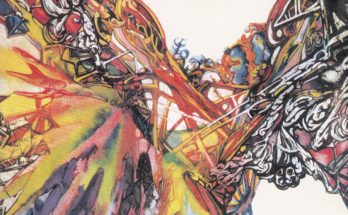By Rodrigo Díaz Guerrero, José María Moreno, and Bernardo Moreno
Fully immersed in the twenty-first century, we have come to change our consumption habits almost without noticing it and according to the transformations of the marketplace. We are now perfectly familiar with technicalities and practices that just a few years ago—not that many, really, seemed more fitting for a science fiction novel. The algorithm, a set of instructions and data processing to solve a specific task, has become a part of our daily lives, as if it was a miniature genius—hidden away in our computers and telephones—that dives in our behalf in the immense expanse of the web in order to sort the market´s demands and reach that which, according to its calculations, is what interests each one of us. In many ways it is a powerful tool: it saves us time spent searching, but it is also a commercial weapon that constantly bombards us with products obeying nothing but the law of supply and demand. This leaves us in a vulnerable position as we enter the internet, turning our virtual experience into a warzone, led not only by different brands, but by this very algorithm that chooses for us, standing its ground against our own free will, our taste, our preferences. As always, here are three proposals to dwell on this fascinating topic.

Spotify’s Algorithms
For this week´s musical recommendation, we decided to bend the rules a little bit and speak about the biggest music provider these days. Recently, much has been said about YouTube´s algorithm and how it can lead its unprepared audience down a rabbit hole of disinformation and fanaticism. But a similar argument can be held against Spotify. Who still listens to complete albums of their favorite band? Is it really your favorite band or is it just the most played? Who discovers new bands by reading magazines, talking to friends, or checking out the posters pasted all around town? We know that Spotify´s algorithm favors the biggest artists—who are the only ones who are really making money with this media— and reproduces in your playlists what supposedly are the most similar artists to those that you listen to over and over again. But it would be naïve to think that this is anything other than market and publicity tendencies gone wild. However, many would claim that there are bands they would never have listened to had it not been for Spotify´s recommendations. The hackers´ advice is to never let the algorithm choose for you, even if the next song on queue is the one you wanted to listen to. Type the name of the band, choose your music, make your own playlists, don’t let an algorithm define your style.

Black Mirror: “Bandersnatch,” David Slade, 2018
Black Mirror is a British series that since its debut created great expectations: a chapter in which an anarchist group kidnaps the princess and demands that the prime minister of the UK engage in sexual relationships with a pig and live on a social network, in order to free the princess. This series is certainly one of the greatest science fiction productions of late: dystopian realities, uncomfortable and fascinating stories, new technological gadgets that are just around the corner, millenary prison sentences for the mind, virtual personal assistants, sensory connection to videogames, eternal rest traveling through time to your favorite memories, amongst so many other revolutionary ideas. The fear that technology awakens in us and how it changes society is the essence of Black Mirror. “Bandersnatch,” the first of its films, goes one step farther and puts you in the place of the protagonist and allows you to decide what he will do next, only to discover what the consequences are. It is a tribute to that literature of our youth that gave us the possibility of building our own story, and also pays homage to those labyrinthine videogames that we’ve come to regard as classics. We know there is a sixth season in the works, but we still don ‘t know when it will be released, though we wait for it at the edge of the seat.

“Exhalation,” Ted Chiang, 2019
If you wish to dwell on technology and its impact on ethics and humanism, what could be better than reading science fiction? And what better example of the latter than Ted Chiang (New York, 1967). “Exhalation” is the second short story compilation of this formidable writer, who has earned the most prestigious awards of this literary genre: Locus, Nebula, Hugo, and Seium. Far from offering us mere dystopian stories, Chiang´s narrative deals with some of the greatest enigmas of the human condition, it tackles our morality when faced with forms of fascinating technologies that go beyond us, it creates vertiginous visions of unfathomable speculations that reflect the mastery of his pen. Following the topic of this week, this book has two stories that we’d like to highlight. “What’ Expected of Us,” and “Anxiety is the Dizziness of Freedom.” No spoilers: the first one is about a harmless toy that has a negative circuit time delay that sends a signal into the past, imploding our notion of free will—a short tale, but straight to the bone. The second one explores the consequences of meeting other versions of ourselves in other space-time configurations. You can imagine how high this book can get you.




